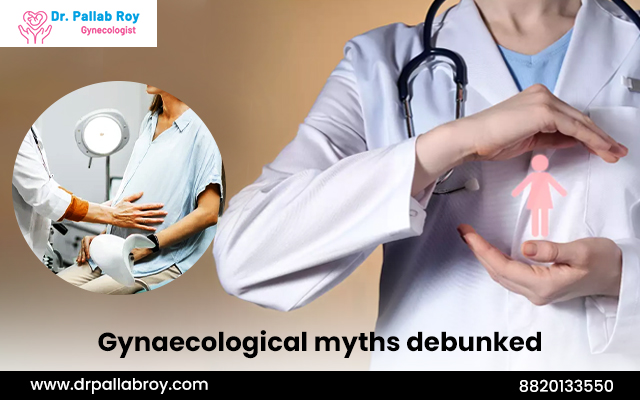Even today, gynaecological problems are often shrouded in myths and misconceptions. There is a lot of stigma attached to gynaecological issues. This stops many women from seeking the required help due to societal taboos, hindering early detection and management. Below, the top gynaecologist doctor in Behala debunks common myths, helping shed light on the true facts and empowering women with the correct information about their reproductive health.
Top Five Gynaecological Myths
Below are the five most common gynaecological misconceptions:
1. Painful periods are normal: It has been the widespread belief that excruciating menstrual pain is normal. According to the top gynaecologist doctor in Behala, this is indicative of certain underlying reproductive health complications. For instance, it can be an early sign of endometriosis, fibroids or other gynaecological issues. Therefore, consult with your gynae if you experience severe pain during your menstruation.
2. Birth control pills lead to infertility and cause weight gain: The long-believed myth is that birth control pills can cause infertility. Birth control pills prevent pregnancy for the duration of time it is used, but it does not have any long-term effect on fertility.
Moreover, many women are hesitant to consider it because they believe that using these pills will result in weight gain. However, as per studies, birth control pills are not directly linked with gaining weight.
3. The vagina does not have an odour: Another misconception perpetuated is that the vagina has a pleasant flowery scent. But in reality, it has an inherent odour due to the presence of natural bacteria. Harsh soaps might disrupt the pH balance of the vagina, causing irritation. Maintaining good hygiene practices without the use of scented products is the key to maintaining vaginal health. However, in certain instances, a strong vaginal odour, along with a discharge, might be indicative of infections like bacterial vaginosis.
4. Gynaecological problems only affect older women: Gynaecological issues, like Polycystic Ovary Syndrome (PCOS), endometriosis, and other gynaecological conditions, can affect women of all ages. Understanding the signs and symptoms, coupled with regular check-ups, ensures early detection for effective management.
5. Pap smear tests detect all kinds of cancer: It is true that pap smear tests are instrumental in detecting cervical cancer but do not, in fact, identify all gynaecological cancers, like ovarian or vaginal cancers.
It is important to dispel myths regarding gynaecological issues to promote a healthy understanding of your reproductive health. So, prioritising open communication with the top gynaecologist doctor is essential to pave the way for more informed decisions.

